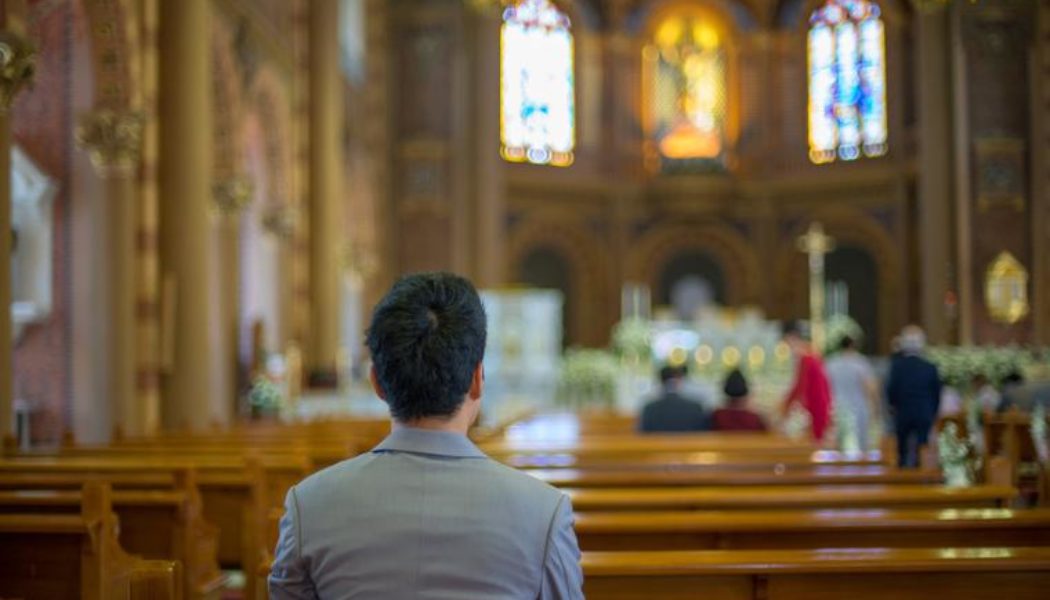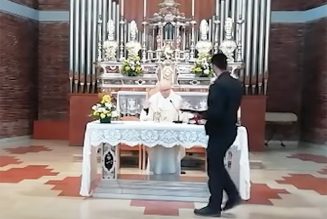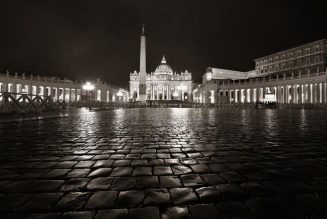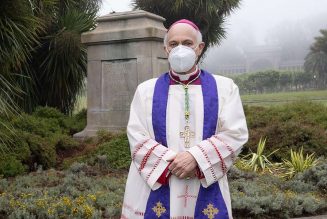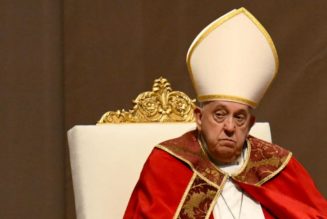
COMMENTARY: While deep theological differences exist, many Christians have found a way to live and work together, and to be friends and brothers in Christ.
He’s the Episcopalian from central casting: the old-fashioned Kennedy haircut, the blue blazer and chinos, the bowtie, the fact that he has “the third” at the end of his name, the social confidence of a man who knows he belongs. “Geoff,” he told me, “is doing a great job.”
That one sentence represents a movement among separated Christians that offers hope for the Catholic Church and for all of God’s people scattered in other bodies. Because my old friend Laurie was the president and dean of a strongly evangelical Protestant seminary and he had named Geoff his dean of students. He put him in charge of the students’ well-being and formation, and to a great extent their pastoral care. At this very evangelical seminary.
Geoff is a Catholic priest. A Byzantine Catholic priest, even.
Wouldn’t Have Happened
This wouldn’t have happened 10 years ago. It might well not have happened just five years ago. The seminary, Trinity School for Ministry, just down the Ohio River from Pittsburgh, was started in the early ’80s by a group of hardcore Anglican evangelicals. The order of the words matters: They were evangelicals first and Anglicans second.
Among them were the patriarchs John Stott and J.I. Packer, and several people who made them look soft. Jim Packer was an old friend, and one whose anti-Catholicism ran deep. His last words at the end of a class taught with his very old friend, the Catholic writer Thomas Howard, were, “The Roman Mass is an insult to my Lord.” He would not have tolerated an actual Catholic priest overseeing the students.
When I was at Trinity (from 1988 to 2003, when I left to edit Touchstone magazine) and through my years of teaching there as an adjunct afterward, the school remained firmly evangelical. That included evangelicalism’s limited tolerance for Catholicism. A minister’s request to use incense in a chapel service started a huge debate, because incense is “Catholic.” A few students started wearing cassocks during Lent and the dean (two deans before Laurie) wanted to ban the wearing of cassocks outside chapel, again because such special dress was “Catholic.”
Even my learned colleagues would talk about Catholic belief and life in terms taken from Protestant polemics. A couple insisted that papal infallibility applied to almost everything a pope said and did, and hence was obviously stupid. When I tried to correct them, they assured me that they understood Catholic teaching.
Marian devotion they rejected out of hand as sub-Christian. They favored either psychological explanations (that Catholic men revere Mary because they can’t stand women) or sociological ones (that Marian devotion is only Christianized paganism). To be fair, I ascribed their inability to understand it to an element of Gnosticism in their thinking that kept them from seeing the significance of the body.
And yet, at Geoff’s ordination as a Byzantine Catholic priest two years ago, I sat a few rows behind Laurie and his wife, and two of the school’s former academic deans. Other faculty members came, as well. Things had changed, a lot, and in just five or 10 years.
What Happened?
What happened? Why has this seminary acted out of character — or what we would have thought was its character? (This isn’t true of everyone in the seminary and its circles, because anti-Catholic prejudice runs deep, but true of more people and to a greater degree than I would have thought possible 10 years ago.)
One cause is the change in generations, on the faculty and among the students. The newer, younger ones just don’t care much about the differences. You can still find a good bit of anti-Catholic prejudice, but it’s not partisan. It doesn’t include the feeling that the Catholic Church is the enemy that must be vanquished to protect the true pure Gospel of Luther, Calvin and Cranmer.
Another cause is evangelicals’ greater experience of Catholic teachers and writers. Some of the faculty had Catholic mentors, and they’re not going to say that someone to whom they owe so much was a consort of the Whore of Babylon. Many of the students have had similar friendships or a Catholic writer who has meant a lot to them. Some have taken advantage of Catholic retreats or spiritual direction, getting something from the Church their own tradition doesn’t offer them.
A third cause is how many have found in Catholic teaching something they couldn’t find in evangelicalism. In my experience, many involved in culture and politics found themselves turning to Catholic social teaching. Pro-life activists, for example, found a more holistic vision of the issue in its relation to all the other issues, with a wiser way of understanding what they’re doing and why. Those who’d begun to question free-market orthodoxy found a deeper understanding of what economic freedom meant.
A few have started exploring even the taboo subjects, like our real friendship with the Mother of God. Their reflection led them to see that the woman who bore the Son of God must be more than evangelicalism allowed. One colleague had told me that she was only “the delivery system,” and put her well down the list of saints, behind a missionary to Canada. The younger ones especially saw how wrong that was.
The school’s founding interest in evangelism and missions helped, as well. Concern for the message has a way of relativizing denominational commitments. The same with apologetics. Combined with this is the fact that the Catholic Church is pretty much their only friend on the cultural issues they care about.
Broken Christians
A last, and very important cause, is that everyone’s broken, and many know it. Broken people can build friendships with each other they wouldn’t have built before, when they felt much more confident. My former colleagues had dedicated themselves to renewing the Episcopal Church and that church kept liberalizing and eventually forced them out because they wouldn’t.
Being roughed up by their peers made it easier to see allies and friends in the Catholic Church, people who believe all kinds of things they think deeply wrong, yet who — unlike their fellow Episcopalians — love the same Lord, the same Scriptures and the same fundamental Christian doctrines. Before, they would have focused on the differences and believed close cooperation theologically impossible. Now they focus on the shared love of the Lord and find friendship natural.
Living Together
The deep theological differences don’t disappear. Everyone knows the Anglican and Catholic ways can’t be reconciled or blended. Geoff says the “Hail Mary” with joy and pleasure. Laurie wouldn’t say it at the point of a sword.
But they and many others now find a way to live and work together despite their differences, and without denying the differences. They’ve found a way to be friends — and more to the point, friends and brothers in Christ. That’s a lot these days.
Join Our Telegram Group : Salvation & Prosperity
